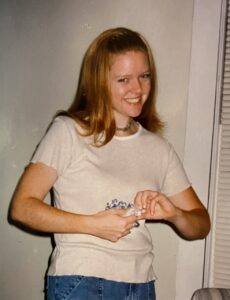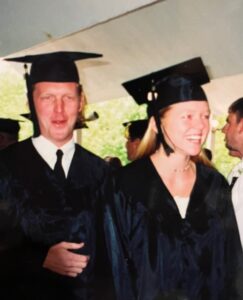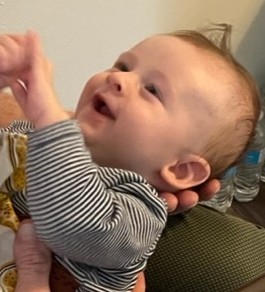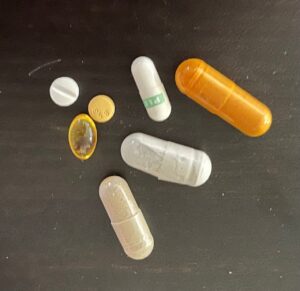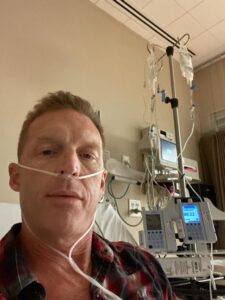 We have received some good help today. As I’m writing this, I’m sitting on a bed in a small room like any other hospital room. There’s a TV and snacks and a little table with the IV drip stand like usual, only this time it’s for chemotherapy and immunotherapy.
We have received some good help today. As I’m writing this, I’m sitting on a bed in a small room like any other hospital room. There’s a TV and snacks and a little table with the IV drip stand like usual, only this time it’s for chemotherapy and immunotherapy.
Picture this. I come to the hospital at 6:45 in the morning for a blood draw for them to continue testing things. Then I go into another room to talk to a doctor for a while about medications, making sure we should move forward with the chemotherapy.
After that, at about 9:30 AM, I come to this room. Today it took two nurses and one doctor five different attempts to find a functioning vein in one of my arms so they could run the IV. I guess I’ve been stuck enough times to make it difficult to find success.
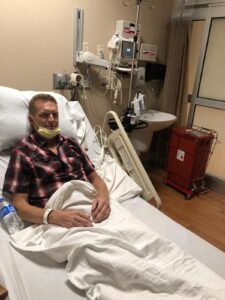 Once they get that squared away, they begin emptying one bag of liquid into me after another. The amazing thing is that the contents of the bags are poison in one sense. After this, I’m not supposed to kiss my wife, and when I go to the bathroom, I’m supposed to flush the toilet two times after sitting down to pee, because the fluid is so radioactive. But apparently this stuff is death to cancer.
Once they get that squared away, they begin emptying one bag of liquid into me after another. The amazing thing is that the contents of the bags are poison in one sense. After this, I’m not supposed to kiss my wife, and when I go to the bathroom, I’m supposed to flush the toilet two times after sitting down to pee, because the fluid is so radioactive. But apparently this stuff is death to cancer.
It’s not cheap, though. I’m told that the bag containing immunotherapy costs more than $30,000. Can you imagine spilling it by mistake?
I have five of these chemo/immuno infusions scheduled over the next many weeks, each one with a CAT scan in between to monitor progress going forward. Today I’m receiving the second of the five. In three weeks I’ll get the next one.
All the testing, scans, appointments, consultations, studies, and everything else comes down to me sitting here in this hospital bed with that clear liquid going into my blood. And that’s the cancer-killer. Isn’t that weird?
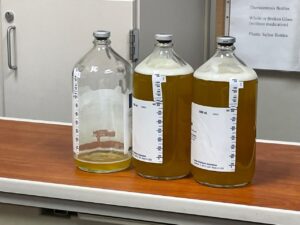 After the three hour infusion was over today, I was scheduled for another draining of my lung called a thoracentesis. This time it was the left side instead of the right. In the four months since this medical drama began, I’ve only had the left lung drained once, and there wasn’t much extra fluid there then. Today they pulled out 2.2 liters—breaking my old record for biggest draw ever, which was 1.6 liters. No wonder I needed oxygen all the time. There will be pain for a few days every time I take a breath, but that will gradually subside. And meanwhile, I’m able to get more air.
After the three hour infusion was over today, I was scheduled for another draining of my lung called a thoracentesis. This time it was the left side instead of the right. In the four months since this medical drama began, I’ve only had the left lung drained once, and there wasn’t much extra fluid there then. Today they pulled out 2.2 liters—breaking my old record for biggest draw ever, which was 1.6 liters. No wonder I needed oxygen all the time. There will be pain for a few days every time I take a breath, but that will gradually subside. And meanwhile, I’m able to get more air.
It’s been a tiring day, but as I said, we received some good help today.
“In the Lord…my heart trusts, and I am helped.” (Psalm 28:7)

